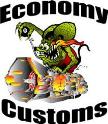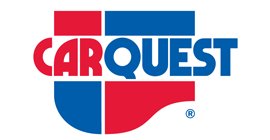Archive for October 2018For Brakes' Sake (Brake Rotor Service in Bristol)Posted October 28, 2018 9:59 AMThink of how much abuse your brakes take. Day in and day out, they stop your vehicle when it's going fast and when it's going slow. Maybe your vehicle has been vibrating when you brake, or maybe it seems like your stopping distance is a little bit longer than it used to be. Then it's time to get your brakes checked out. After all, you have to be able to stop if you want to be safe. Nearly all newer vehicles have disc brakes on the front, and many have that type of brake on all four wheels. That makes it likely you'll be getting disc brakes fixed at some time in your vehicle's lifetime. Knowing how disc brakes work is as easy as riding a bicycle. If your bike had hand brakes, you'll probably remember a mechanism that squeezed a couple of pads on each side of your bicycle wheel when you applied the brakes. Disc brakes are similar; but instead of the bike wheel, there's a metal disc instead. If that disc is warped or has irregularities in it, it's going to vibrate. It used to be that rotors were thick, and when they warped, a technician could "turn" them to scrape off a layer of metal so their sides were straight again. The latest vehicles are using thinner, lighter rotors with a slightly different construction. Now, it's likely that rotors that are resurfaced this way will not have enough metal left to work safely. In fact, some manufacturers advise only replacing rotors that are worn out. Newer designs have reduced rotor prices, and in many cases, the labor cost of turning the rotors is higher than buying new. There are times, though, where your rotors can be resurfaced and still meet manufacturer specifications. If you have a rotor replaced on one side of your vehicle, it might be a good idea to replace rotors on the other side, too. Maybe you're looking for the new rotors to last longer than the ones that were on there. New technologies can offer a longer lifespan in a premium rotor. Armed with knowing the type of driving you do, you and your Economy Transmission and Auto Repair service advisor can make the best decision on which direction you want to go with your new brakes. Economy Transmission and Auto Repair Connecticut: What Is the Risk of High Oil Change Intervals?Posted October 21, 2018 8:21 AMConnecticut residents may have heard that vehicles don't need their oil changed as often as they used to. That's true. But it's not the whole story. When a vehicle only makes trips under four miles/six kilometers, or under 10 miles/16 kilometers in freezing conditions, the engine doesn't get warm enough for condensation in the oil to evaporate. The result? You get oil sludge build-up. If your driving patterns are the same as any of the conditions that count as severe, you should be changing your oil more frequently under the severe conditions schedule. When it comes to oil changes, a little information can go a long way to helping people save money and extend the life of their vehicles. Stay safe, and stay on the road. Economy Transmission and Auto Repair
201 Terryville Road
Bristol, Connecticut 06010
(860) 589-1255
Wishy-Washy in BristolPosted October 14, 2018 12:53 PMPerhaps you've found yourself driving when something all of a sudden splashes on your windshield, obstructing your view. You know that sinking feeling when you try to turn on the windshield washers and no fluid comes out. Now you're blinded even more. What can you do? The best thing is to make sure your windshield washer fluid is always topped off and ready for these situations. You probably figure you'll grab a bottle of that blue stuff you see in the store. But is that really the right choice? One thing you know isn't the right choice is plain water. It can freeze when temperatures drop. Plus, when it's close to the freezing mark outside, spraying water on your windshield can freeze, turning it literally into frosted glass and blinding you suddenly. Water freezing in your vehicle's washer lines can also damage them. There are different types of windshield washer fluid made for different climates. Many have alcohol to prevent them from freezing; their label will usually tell you at what temperature they'll start to freeze. Some washer fluids will have detergents in them so they can cut through contaminants and dirt. Still other washer fluids have a chemical in them to prevent streaking. Also keep in mind some washer fluids are made to be put in your fluid reservoir as is; others are made to be diluted. No matter what washer fluid you pick, make sure you have plenty of it in your vehicle. Our pros at Economy Transmission and Auto Repair can top off your levels with the right kind of fluid. That's also a good reminder to have your windshield washer system working properly. Your technician can check not only the washers but the wiper blades and motor to make sure all are in top condition. The worst time you can discover it is usually when you need it most. Economy Transmission and Auto Repair On Board Diagnostics for Your EnginePosted October 7, 2018 5:27 AMStarting in 1996, Economy Transmission and Auto Repair service technicians have been able to use a standardized diagnostic system to help determine what is wrong with a vehicle. This diagnostic system works in tandem with the Engine Control Modules for each vehicle's engine. The Engine Control Module is a computer that monitors and controls many engine functions. Economy Transmission and Auto Repair | ||
SearchArchiveFebruary 2010 (2)March 2010 (4) April 2010 (3) May 2010 (4) June 2010 (4) July 2010 (4) August 2010 (4) September 2010 (5) October 2010 (1) November 2010 (5) December 2010 (5) January 2011 (4) February 2011 (4) March 2011 (5) April 2011 (4) May 2011 (4) June 2011 (5) July 2011 (4) August 2011 (21) September 2011 (4) October 2011 (4) November 2011 (5) December 2011 (4) January 2012 (5) February 2012 (4) March 2012 (4) April 2012 (4) May 2012 (2) June 2012 (3) July 2012 (1) August 2012 (1) November 2012 (1) December 2012 (2) March 2013 (1) April 2013 (3) May 2013 (2) October 2013 (5) November 2013 (2) January 2014 (2) February 2014 (3) March 2014 (2) July 2014 (3) August 2014 (7) September 2014 (4) October 2014 (5) November 2014 (4) December 2014 (4) January 2015 (5) February 2015 (4) March 2015 (4) April 2015 (5) May 2015 (2) June 2015 (6) July 2015 (2) September 2015 (2) October 2015 (5) November 2015 (3) December 2015 (3) February 2016 (1) March 2016 (5) April 2016 (4) May 2016 (5) June 2016 (4) July 2016 (5) August 2016 (4) September 2016 (4) October 2016 (5) November 2016 (4) December 2016 (4) January 2017 (5) February 2017 (4) March 2017 (4) April 2017 (4) May 2017 (4) June 2017 (5) July 2017 (5) August 2017 (4) September 2017 (3) October 2017 (5) November 2017 (4) December 2017 (3) January 2018 (5) February 2018 (4) March 2018 (4) April 2018 (5) May 2018 (4) June 2018 (4) July 2018 (5) August 2018 (4) September 2018 (5) October 2018 (4) November 2018 (4) December 2018 (5) January 2019 (4) March 2019 (4) May 2019 (2) June 2019 (5) July 2019 (2) August 2019 (2) September 2019 (4) October 2019 (5) November 2019 (4) December 2019 (5) January 2020 (5) February 2020 (4) March 2020 (5) April 2020 (1) May 2020 (2) July 2020 (2) August 2020 (5) September 2020 (4) October 2020 (4) November 2020 (5) December 2020 (4) January 2021 (6) February 2021 (4) March 2021 (4) April 2021 (4) May 2021 (5) June 2021 (4) July 2021 (4) August 2021 (5) September 2021 (4) October 2021 (5) November 2021 (4) December 2021 (4) January 2022 (6) February 2022 (4) March 2022 (4) April 2022 (4) May 2022 (5) June 2022 (4) July 2022 (3) September 2022 (4) October 2022 (5) November 2022 (4) December 2022 (4) January 2023 (5) February 2023 (4) March 2023 (4) April 2023 (5) May 2023 (4) June 2023 (4) July 2023 (5) August 2023 (4) September 2023 (4) October 2023 (1) January 2024 (1) February 2024 (4) March 2024 (1) | CategoriesTires and Wheels (40)Maintenance (53)Monitoring System (3)Fuel System (47)Older Vehicles (4)Drive Train (9)Steering (15)Warranty (2)Service Standards (13)Parts (7)Transmission (11)Trip Inspection (4)Service Intervals (9)Automotive News (8)Battery (20)Cabin Air Filter (8)Windshield Wipers (9)Brakes (22)Shocks & Struts (9)Cooling System (19)Timing Belt (6)Check Engine Light (6)Alignment (17)Fluids (17)Headlamps (6)Inspection (11)Exhaust (12)Differential Service (4)Air Conditioning (17)Safety (6)Dashboard (3)Diagnostics (5)Fuel Economy (10)Engine Air Filter (2)Suspension (3)Diesel Maintenance (1)Keys to a long lasting vehicle (4)Serpentine Belt (6)Alternator (6)Winter Prep (7)Emergency Items (1)Auto Safety (6)Fuel Saving Tip: Slow Down (2)What Customers Should Know (81)Tire Rotation and Balancing (3)Customer Detective Work (1)Oil Change (7)Wheel Bearings (1)Safe Driving (1)Tires (10)Water Pump (1)Winter Tires (1)Spark Plugs (2)TPMS (3)Brake Service (4)PCV Valve (2)Transfer Case Service (1)Fuel Pump (1)Shocks and Struts (1) | |








